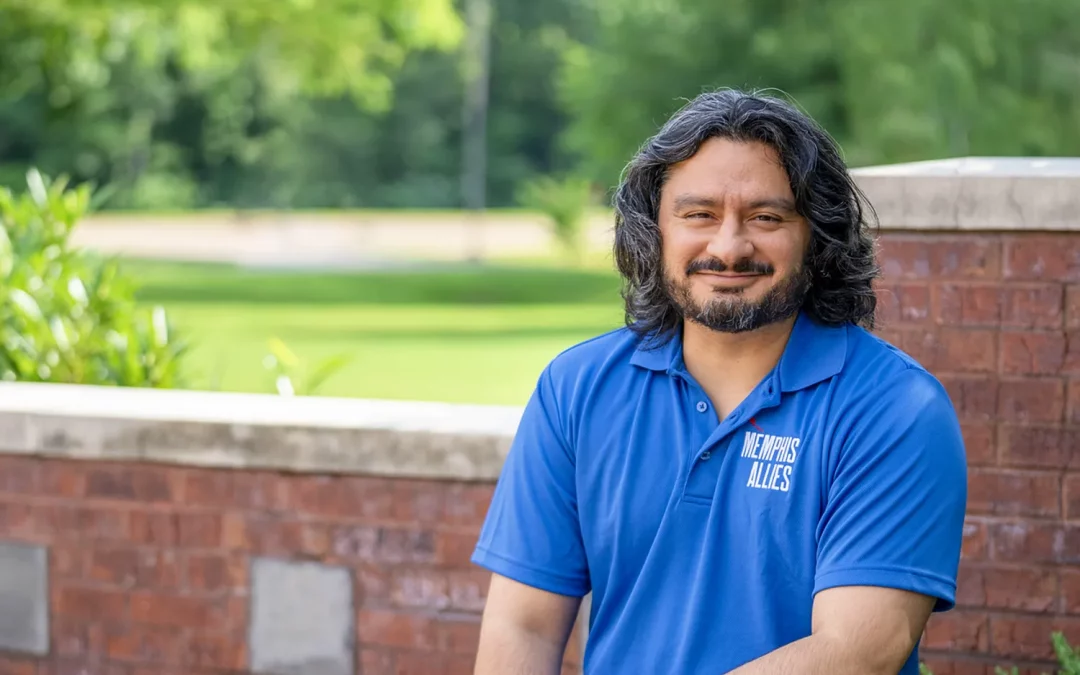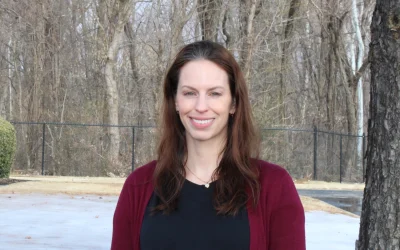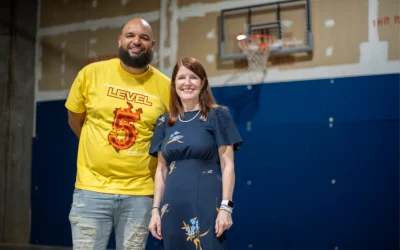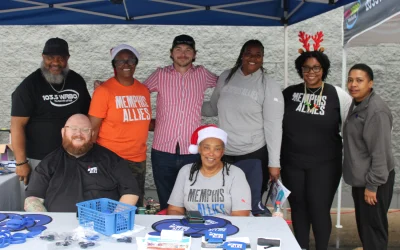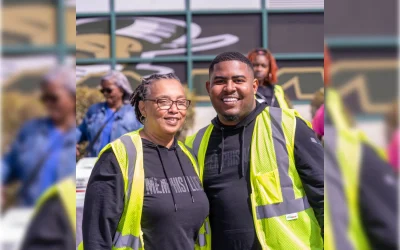Case Manager Alejandro Salinas ‘goes the extra mile’
Memphis Allies Case Manager Alejandro Salinas sees it all the time: trauma that impacts decision-making.
The trauma might show up in the form of poverty and gun violence. It might be inspired by a lack of love and being around family and peers who are using drugs and/or committing crimes.
“I see first-hand where, if people are not loved in childhood, they do go find that in the streets,” said Salinas, who works in Memphis Allies’ SWITCH program in Orange Mound. “That is so real. Trauma will make you do stupid, crazy stuff—you’ll try to find what you’re looking for in drugs, violence… anything. And you don’t care.”
I’ve gone through a lot of stuff, overcome some stuff. That helps me build rapport.
– Alejandro Salinas
Coming to America
Born in Bolivia, Salinas arrived in America at age 7, when his twin sister, Gabby, needed cancer treatment. This eventually led the family to St. Jude Children’s Research Hospital and Memphis.
So, Alejandro knew the trauma of a personal crisis. He also lived through a car accident that took the lives of his father and another sister and left his mother in a wheelchair (his twin sister is now cancer-free, a scientist, and running for a seat in the state legislature).
The family did not have a lot of money, and it was through a scholarship that he was able to attend Christian Brothers High School.
“I didn’t know how to read until I was in sixth grade,” said Salinas, who began work at Youth Villages as a bilingual family intervention specialist. “Even in college (at the University of Memphis), I struggled a little bit with reading comprehension. I would always be the last one finishing the test.”
But finish he did. Salinas’ story is one of perseverance.
It is a quality that participants in the SWITCH program need as well.
“I’ve gone through a lot of stuff, overcome some stuff,” he said. “That helps me build rapport even though I don’t look like them and didn’t come up from the same neighborhood.”
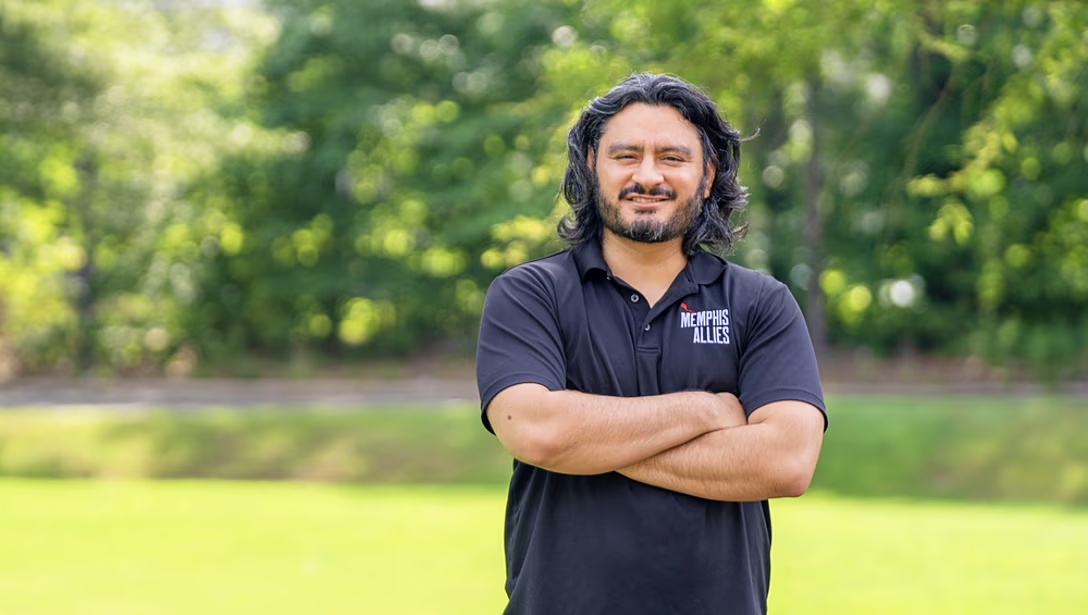
Real risk, real fear
In his three years working with families, Salinas learned a lot. He was not shocked by seeing families living in neighborhoods rife with gun violence.
But something else stunned him.
“I always like to leave sessions on a positive note,” he said. “I’m working with a mom and daughter, and I’m asking them for three things they appreciate about each other. Daughter is like, `She cooks for me, and things like that.’ And mom was like, `I got nothing.’
“That knocked me down,” he said. “I had to pivot.”
It was good training for the work Salinas does now. Program participants are at elevated risk for gun violence—as victims, as perpetrators, or both.
“I can’t explain the fear they feel,” he said. “They get roped into things, like getting into a car. That’s why the first question I ask them is, `Do you have danger right now? Where’s it coming from?’”
A win is a win
Aviance Brown-Austin is Salinas’ regional supervisor.
“He walks through the storm with people,” she said. “Alejandro’s willing to go that extra mile.”
Said Salinas: “As a case manager, I find the resources, get vital documents – driver’s license, Social Security, birth certificate, and teach them how to get resources. Some guys are by themselves and have no records.”
Helping to procure those vital documents and/or the necessary education and training can be more challenging than it might sound.
“He isn’t afraid to go build those relationships,” said Memphis Allies Executive Director Susan Deason, who originally hired Salinas to work at Youth Villages and brought him to Memphis Allies. “Alejandro is passionate about people, and he connects really well.”
Even though his lived experience might not match the experiences of those he is trying to help, he knows well that every life has its obstacles.
And that even small successes matter.
“I had a participant that didn’t have a job, was homeless, stressed out, and three months later he’s still stressed, but he did have a job and had some food,” Salinas said. “So, I’m like, ‘Cool, let’s celebrate this win. Because two months ago, you had nothing.’
“Trauma is trauma,” he added. “Once you’ve been through it, you can recognize it. And that helps you connect with people and understand what they’re going through.”
More Posts
Pain is Universal
Image above: Jennifer Davis, Memphis Allies SWITCH program clinical supervisor Memphis Allies Clinical Supervisor Jennifer Davis: ‘Pain is universal.’ Fight. Flight. Freeze. Imagine living every day within one — or all — of those three realms. Many Memphis Allies...
Memphis Allies sees progress in reforming violent offenders. Here’s how
Image above: Memphis Allies Managing Director of Operations Carl Davis and Executive Director Susan Deason pose for a portrait in the recreation area of the facility in Memphis, Tenn., on September 3, 2025. Chris Day/The Commercial Appeal Lucas Finton, Memphis...
Holiday Toy Drive
Image above: Memphis Allies teams up with 103.5 WRBO at the holiday toy drive Community generosity thrives at Memphis Allies toy drive Memphis Allies hosted a Holiday Heroes toy drive in December. Memphis Allies staff, along with radio station 103.5 WRBO, accepted...
Making Vital Connections
Image above: Debbie Thompson, Memphis Allies community relations manager, and Jevonte Porter, Memphis Allies community relations director Memphis Allies community relations team making vital connections In 2022, when Memphis Allies began sending outreach specialists...

